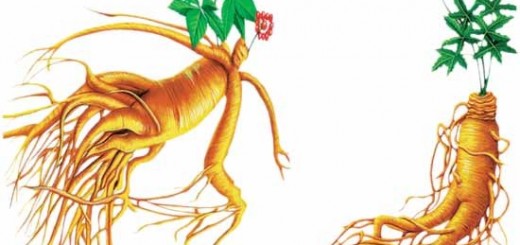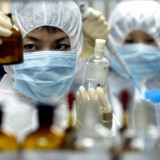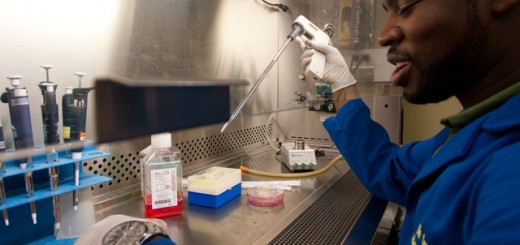Microglia is a transformed macrophages in brain tissue. It has been long established that macrophages play an important role in inflammation process, and their excessive activation could lead to tissue injury and organ malfunction.
In chronic inflammative conditions such as arthritis and neurodegenerative diseases, microglias are persistantly activated and the resultant release of inflammatory chemicals like tumor necrosis factors and interleukins would cause neuron injury.
A paper published on a journal “Neural Regeneration Research” found that ginsenoside Rb1 could inhibit the activation of microglia, and reduce it activity so as to protect neuronal injury.
Related Articles:
Ginsenoside Rb1 attenuates activated microglia-induced neuronal damage.
Neural Regen Res. 2014 Feb 1;9(3):252-9
Authors: Ke L, Guo W, Xu J, Zhang G, Wang W, Huang W
Abstract
The microglia-mediated inflammatory reaction promotes neuronal damage under cerebral ischemia/hypoxia conditions. We therefore speculated that inhibition of hypoxia-induced microglial activation may alleviate neuronal damage.
To test this hypothesis, we co-cultured ginsenoside Rb1, an active component of ginseng, and cortical neurons. Ginsenoside Rb1 protected neuronal morphology and structure in a single hypoxic culture system and in a hypoxic co-culture system with microglia, and reduced neuronal apoptosis and caspase-3 production. The protective effect was observable prior to placing in co-culture.
Additionally, ginsenoside Rb1 inhibited levels of tumor necrosis factor-α in a co-culture system containing activated N9 microglial cells. Ginsenoside Rb1 also significantly decreased nitric oxide and superoxide production induced by N9 microglia.
Our findings indicate that ginsenoside Rb1 attenuates damage to cerebral cortex neurons by downregulation of nitric oxide, superoxide, and tumor necrosis factor-α expression in hypoxia-activated microglia.
PMID: 25206809 [PubMed]
Source: Dammarane Saponins

















































